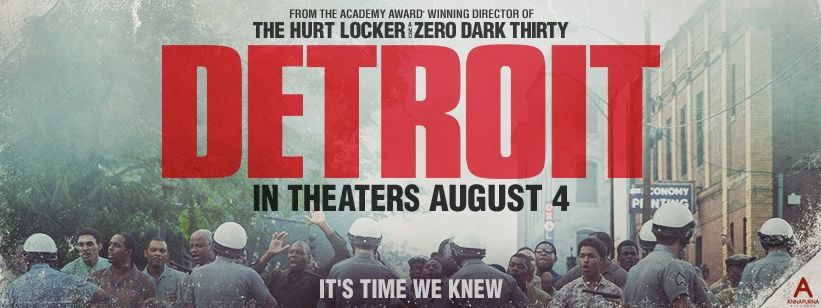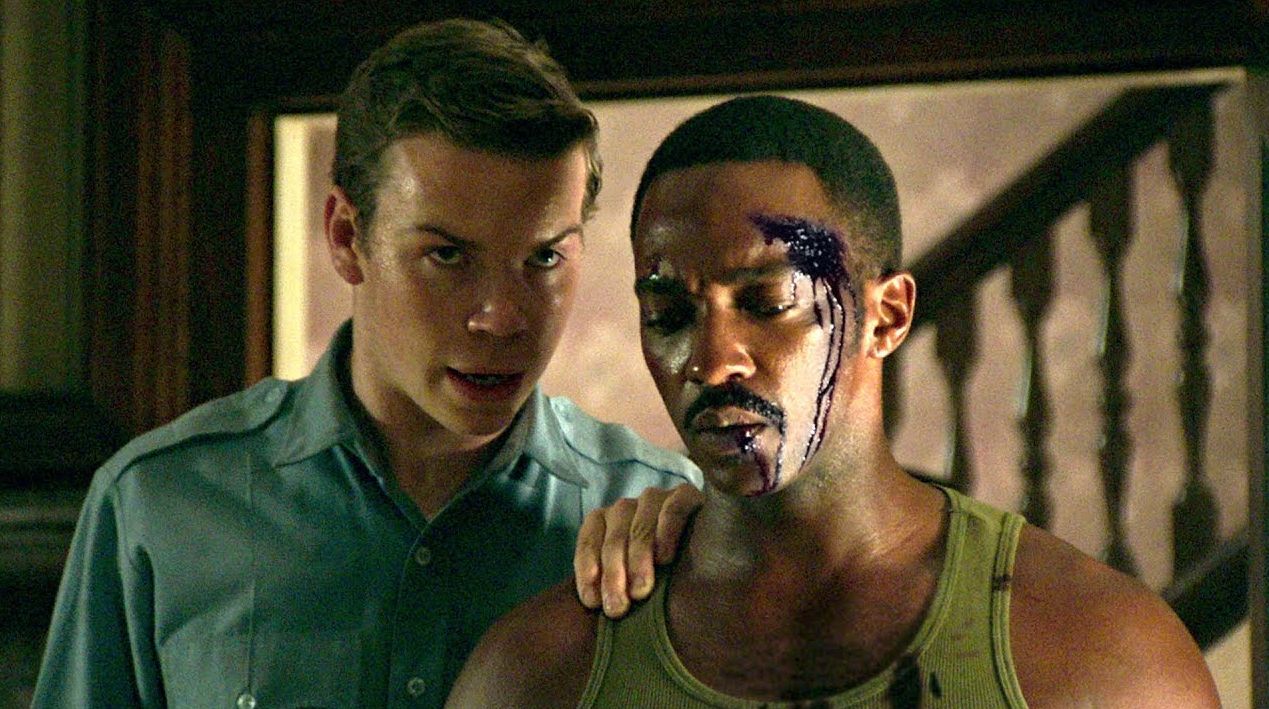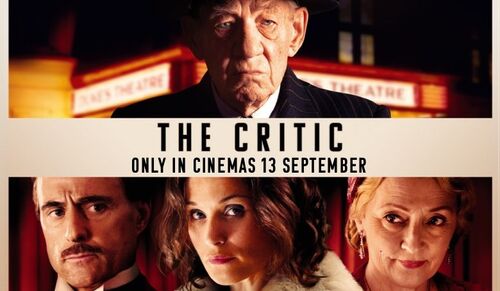
"Detroit" Review
 Kathryn Bigelow follows-up her Oscar winning military/war-based dramas "The Hurt Locker" and "Zero Dark Thirty" with a look at the 1967 Detroit riots, specifically shedding light on an incident in American history that most people don't know much about. "Detroit" does include authentic newsreel footage, but this is not a standard docu-drama. Rather, it's a dramatized account of the "true story", with some of the core facts at the forefront. Bigelow makes this clear with a rare 'disclaimer' at the end of the film.
Kathryn Bigelow follows-up her Oscar winning military/war-based dramas "The Hurt Locker" and "Zero Dark Thirty" with a look at the 1967 Detroit riots, specifically shedding light on an incident in American history that most people don't know much about. "Detroit" does include authentic newsreel footage, but this is not a standard docu-drama. Rather, it's a dramatized account of the "true story", with some of the core facts at the forefront. Bigelow makes this clear with a rare 'disclaimer' at the end of the film.
"Detroit" depicts the violence and anger, triggered by heightened racial tensions, between the city's largely black population and mostly white police force. The story centers around the night of July 25, 1967 and the shooting of three young black men in the Algiers Motel. Bigelow provides a gritty view from all sides of this tragic night:
The motel residents/suspects, including the lead singer and manager of the singing group The Dramatics, who simply find themselves in the wrong place at the wrong time with the wrong skin color.
Will Poulter ("The Revenant") plays Detroit police officer Philip Krauss, who takes charge of the investigation at The Algiers. Krauss is not only trigger-happy, but as much as he tries to hide it, a racist. Poulter gives what may be the year's most villainous performance to date.
The inclusion of black security guard Melvin Dismukes in the mix adds a third level, not normally present in the 'good vs. evil' narrative. Dismukes, played by "Star Wars: The Force Awakens" breakout star John Boyega, tries to be the calming influence in the middle of the chaos. Not an easy task.
Even though "Detroit" covers the five days of the riots (and flashes forward several years in the final act) the core of the film takes place at the motel that fateful night. We witness, along with Dismukes, the barbaric interrogation tactics of the Detroit Police Dept. and, eventually, the murders. We are with Dismukes, helplessly taking it all in as outsiders, but not immune to the consequences.
Unfortunately, Bigelow and "Hurt Locker", "ZD30" screenwriter Mark Boal spend an inordinate amount of time on the quest for stardom of the The Dramatics, whose dream of landing a Motown record contract is derailed by the racial strife in the city. As much as these scenes are a welcome break from tense, impending doom of the rest of "Detroit", you can't help but feel they belong in a different movie.

The performances from the very believable ensemble are the best things about "Detroit". Much of the rest of the film feels forced - from the preachy animated prologue, to obvious, basic themes about racial division, tension and hatred. Early on, a little black girl is watching a cartoon on TV. The character featured has a gun at the hip. The girl peeks her head out the window of her 5th floor tenement apartment at the police and National Guardsmen below. From their distance they think she might be a sniper, so they open fire at the window.
The core of "Detroit" - the Algiers Incident - is riveting. Once it's finally over you feel exhausted and disgusted. However, that emotional intensity is completely erased in the film's final half hour, which is devoted to typical courtroom scenes that provide none of the power of what we just endured. Bigelow would have been better ending with a simple summary via on-screen text. Including the trial (and an all-too-recognizable John Krasinski as one of the attorneys) and reaching for a "happy" ending, for a movie that didn't deserve one, were mistakes.
The murders of these innocent black men stands as one of the most despicable incidents in the long, ugly history of racial conflict in America. Unfortunately, "Detroit" simply doesn't do it justice.


